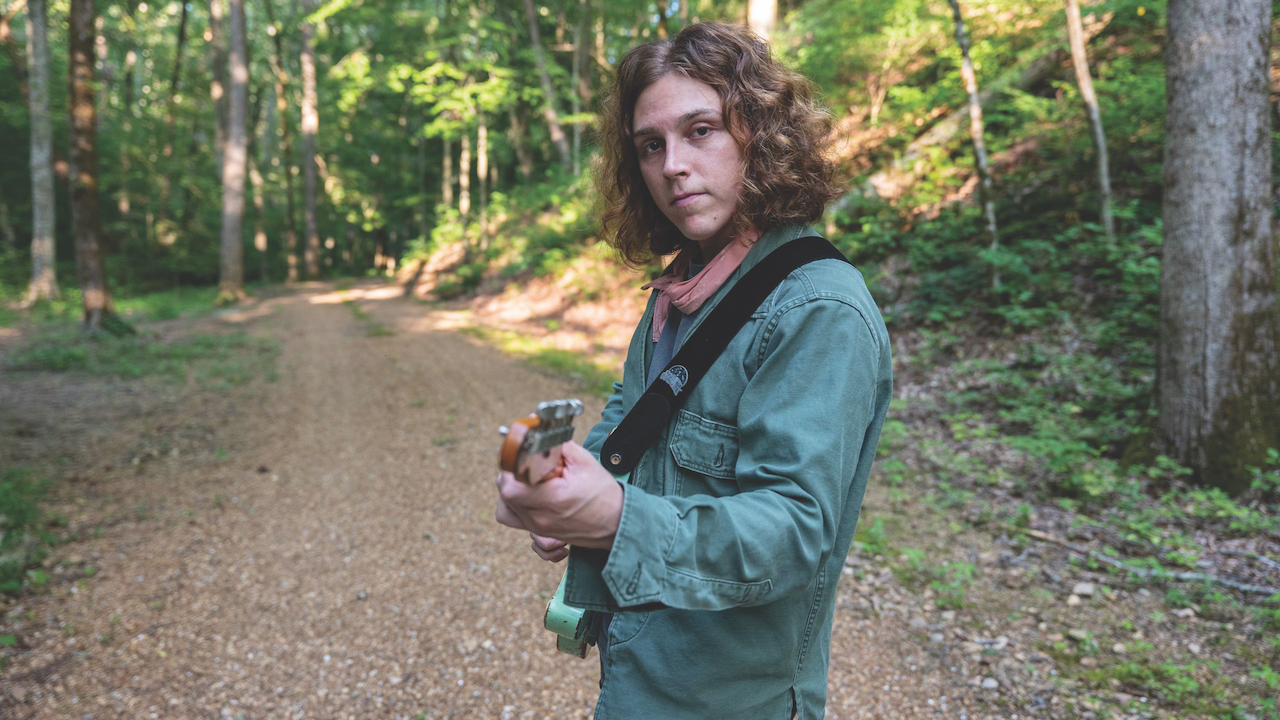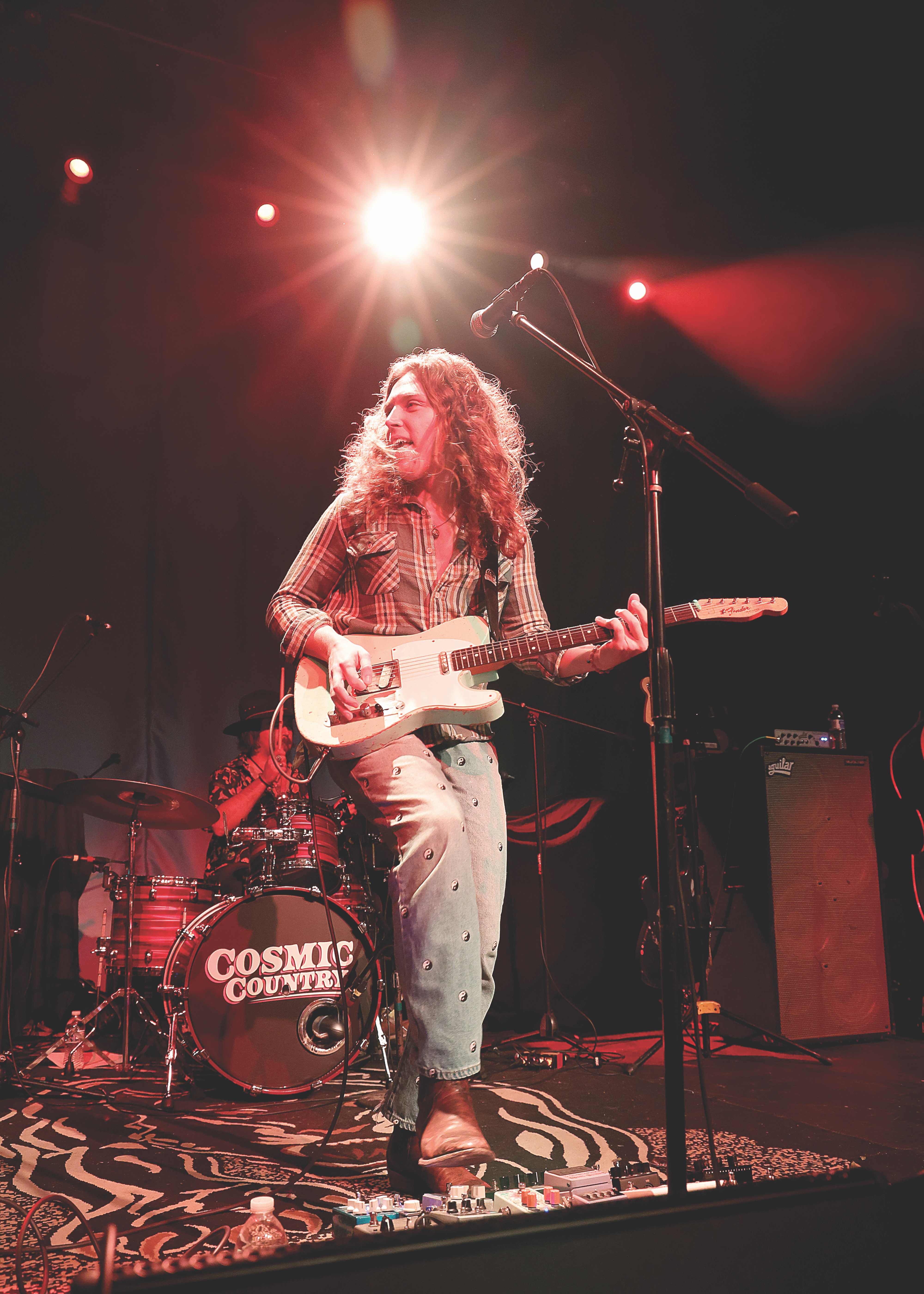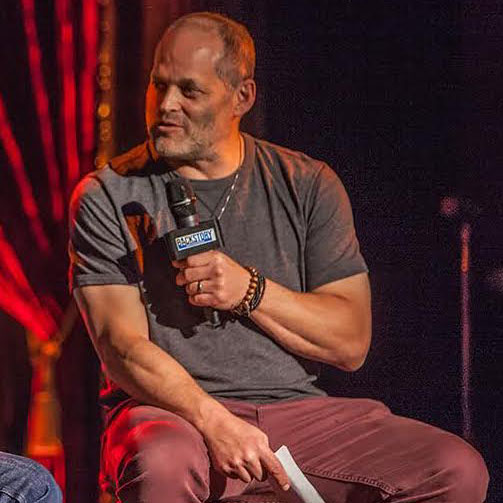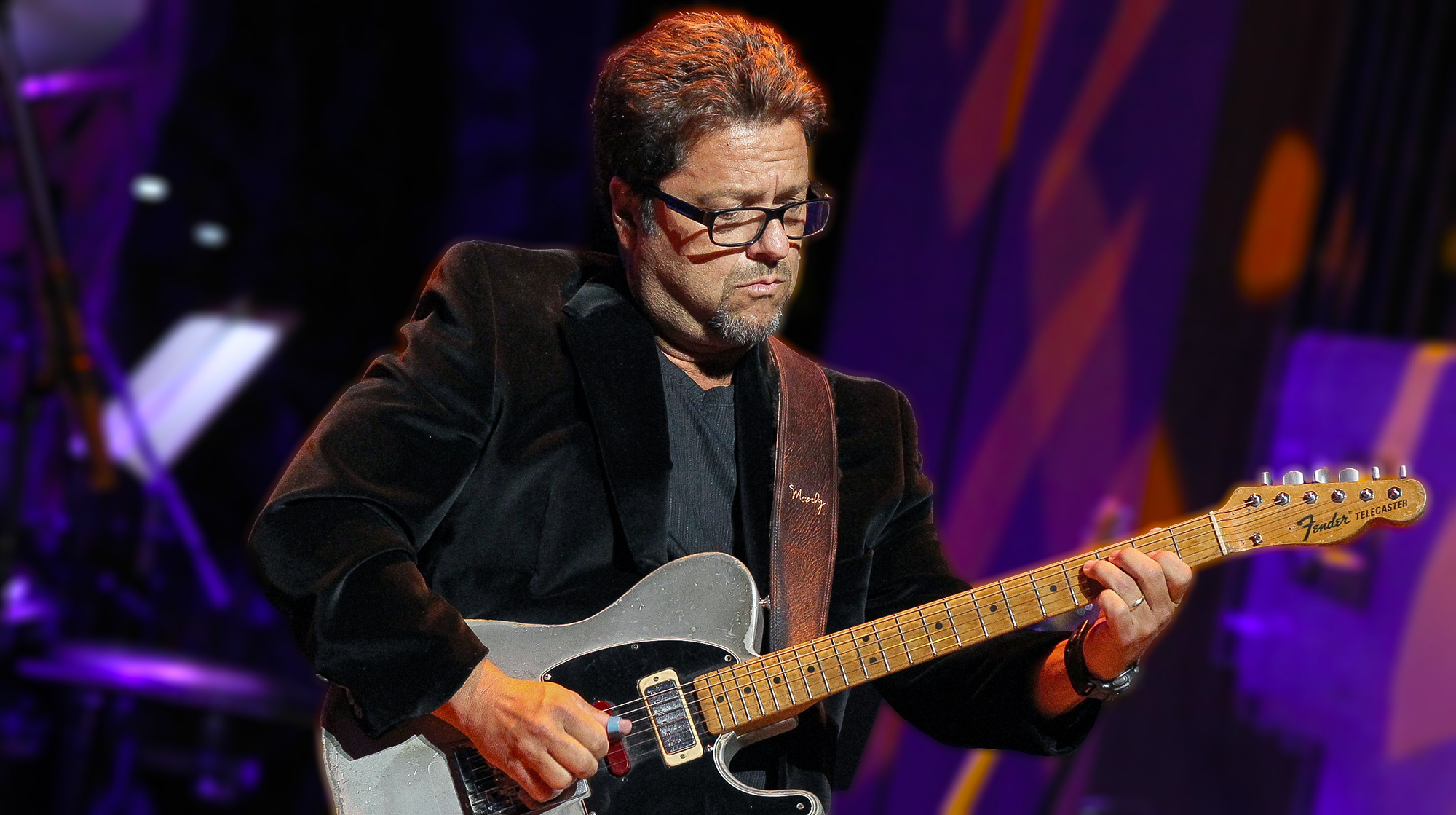
Daniel Donato is one of the freshest, most exciting young roots guitarists of recent years. He has played hundreds of shows with his band Cosmic Country, while also performing the Allman Brothers Band repertoire with Trouble No More, alongside fellow young gun Brandon “Taz” Niederauer. Donato’s growing acclaim has led to sit-ins with luminaries that include Billy Strings, Widespread Panic and, individually, the Grateful Dead’s Bill Kreutzmann and Bob Weir.
On his new album, Reflector (Retrace Music), the 28-year-old Nashville-based guitarist stretches beyond his first two releases, A Young Man’s Country and Cosmic Country & Western Songs, with his first full collection of original material. His songs glide effortlessly across genres, fuelled by his sturdy, rhythmic Tele picking and high, keening vocals. On the road and on his new recording, Donato is fulfilling the promise he’s shown since he became the youngest musician to be a regular member of the Don Kelley Band at the iconic Nashville honky- tonk Robert’s Western World, at age 16. There he mastered playing “super-fast, hard, clean” covers of a wide range of music, performing four hours a night, four nights week. It was a kind of basic training that prepared him to be the road warrior he is today. We caught up with Donato in the midst of his endless tour.
A press release describes Reflector as your first fully realized album. What does that mean to you?
I wouldn’t say it is fully realized, because nothing that exists in this dimension is fully realized. I think the watchword is “progress,” and Reflector is a great beacon for such an ideal. Many people are solely destination- based, which seems devoid of logic, faith and imagination. I’ve fully committed my life to the service of truth, beauty and goodness through creating music. A lot has happened in the last few years that awakened me.
You and the band have put a lot of miles on your van and played a lot of shows in those years. Can you describe the growth as a musician and a person that comes with that?
You never step in the same river twice. I believe that every time you play a show,
it is literally the only show that has ever happened. Each moment, each note, each beat, every second of your life has led up to that moment. Playing all of these shows taught me that.
How has your musical vision changed?
All the latest guitar news, interviews, lessons, reviews, deals and more, direct to your inbox!
It’s the same as when I was pickin’ honky- tonk songs down at Robert’s Western World. But I’ve come to discover the true potential of what music can be for people: the conduit for reverential potential in people’s lives. For the longest time, I thought that was just for folks onstage, but I always try to take time to shake hands, give hugs, receive and give love. That energy transfer has been very informative.
How has your guitar playing changed as you’ve logged so many shows?
It’s grown immensely. The guitar is the vehicle for intention, and the expression of eternally enduring sentiments that exceed the bandwidth of spoken language. The way I think, play and feel as a guitarist has continued to express itself and realize its potential with each show Cosmic Country plays.

Your road band is on Reflector. Were you tempted instead to use Nashville studio pros, which would be more the norm down there?
Music, for me, is a personality puzzle, and it’s a special experience to bring songs to life through personalities that are harmonized with each other. This kind of music is a vehicle for human expression with high- frequency ideals, so the music demands that the same personalities show up each day and bring it to life through our lives.
You’ve had the opportunity to play with quite a crew of people over the past year.
Being able to play with some of my heroes has been a transcendent blessing, enforcing my faith in my imagination, and its capacity to produce scenes from my mind into external realities that I actually live.
Give us some thoughts on playing with each of the following: Bill Kreutzmann, Billy Strings, Bob Weir and Widespread Panic.
Kreutzmann was insistent that playing in [his group] Billy & the Kids was fun for everyone. He’s been doing this his whole life, and I was curious to see what he considered important. He didn’t care about any aesthetic signals, minutia of composition or anything like that. The main value that he was seeking was that the music was truthful and living, and that this was recognized when everyone was having fun.
I see Billy Strings as an exceptional source for our generation to love and learn from. He is the personification of the very spirit of American music and its ideals. Playing with him, I was reminded not to overthink anything — to dive in headfirst, much like a child, with total faith, vision and personal expression. Essentially, no fucks given — aside from the music herself.
I cemented Reflector as the title for this record after playing with Bob Weir. Bob listens internally, and externally he reflects the emotions and sentiments of himself and everyone onstage. And most importantly, he bestows himself with the eternal pleasure of surrendering his will to the will of the music and the service of bringing it to life.
Playing with Widespread Panic was a great integration of impostersyndrome for me. You can’t kill the ego, but you can give it a proper place at the table. I just played my solo section on Surprise Valley, and the entire arena was in joyous celebration, and Jimmy Herring peeked behind my amp and asked, “What speakers are you using?” The fact that the environment of thousands of people cheering for us was secondary to his imagination of hardware and tools allowed me to see both sides of the coin clearly.
I believe that every time you play a show, it is literally the only show that has ever happened.
Is anyone your alpha and omega as a guitarist?
Django Reinhardt is tough to beat, but James Burton, Don Rich, Grady Martin, Danny Gatton, Brent Mason, Johnny Hiland, Eldon Shamblin, Roy Buchanan, Roy Nichols, Jerry Reed, Chet Atkins and Redd Volkaert are all coming to my mind, too.
What is your essential road gear?
There are two categories of gear outside of collecting, and those are Fixed and Variable, or Exploit and Explore. My Fixed gear pieces consist of a Telecaster and a vintage pre-CBS–era Fender amplifier, preferably a blackface, as well as Mogami cables and Gravity Jazz III acrylic picks, Ernie Ball 10–52 strings and my Cosmic Country phaser made by Keeley Electronics. On the road the amp is a 1966 Pro Reverb, and in the studio it is a 1966 Princeton Reverb.
The Variable gear is extensive. I use a wide array of pedals: The Plus by GameChanger Audio, the Eventide H90, the Keeley Noble Screamer, the Ego Compressor by Wampler, the Timeline by Strymon and the Walrus R1 reverb. These are pedals I love using, but I also change them in and out with other elements that my imagination might require on any given day.
Alan Paul is the author of three books, Texas Flood: The Inside Story of Stevie Ray Vaughan, One Way Way Out: The Inside Story of the Allman Brothers Band – which were both New York Times bestsellers – and Big in China: My Unlikely Adventures Raising a Family, Playing the Blues and Becoming a Star in Beijing, a memoir about raising a family in Beijing and forming a Chinese blues band that toured the nation. He’s been associated with Guitar World for 30 years, serving as Managing Editor from 1991-96. He plays in two bands: Big in China and Friends of the Brothers, with Guitar World’s Andy Aledort.

